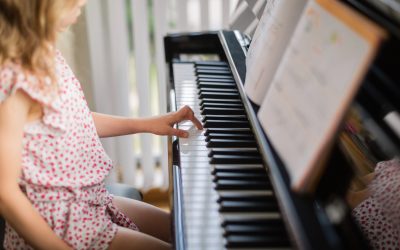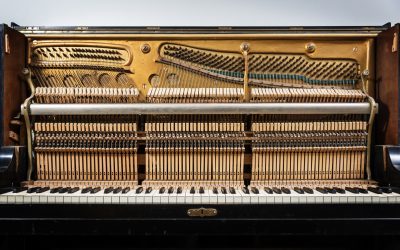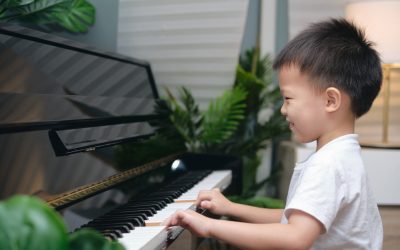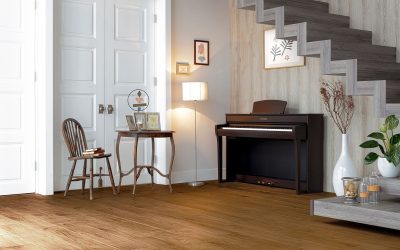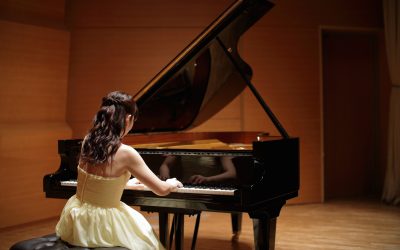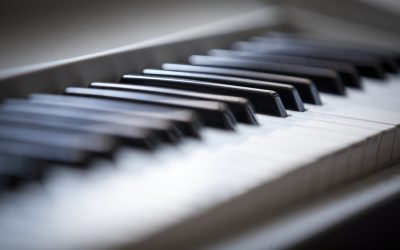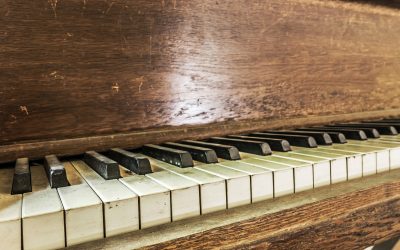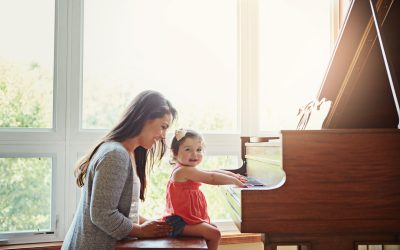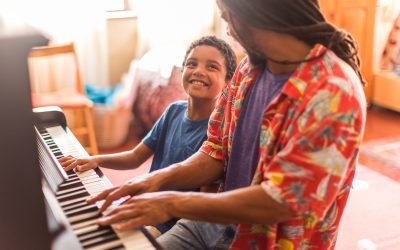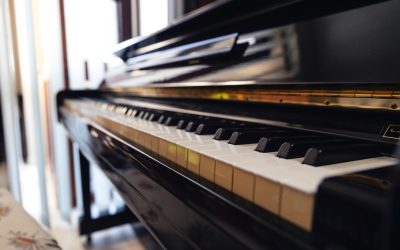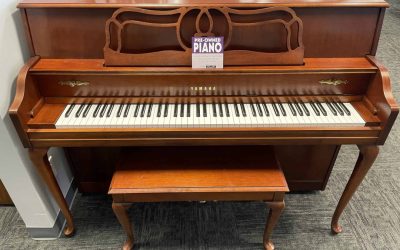There’s more than a price tag to look at when you’re considering purchasing a piano. This new fixture will undoubtedly bring music and joy into your home, but it comes with additional considerations such as future maintenance and your purpose of purchase. Think to yourself, ‘do I have the time or means to invest in a piano beyond its initial purchase price?’ Don’t make the mistake of making an impulse purchase and overlooking important details that will make your piano a beloved investment the family can enjoy for many years.
Why You Should Buy a Piano
If you’re considering a piano purchase, you’ve likely already fleshed out the reasons why you want to do so. Likely, someone in your family has just taken up lessons or is already a practiced musician and you want to have easy access to one of the world’s most beloved instruments. Think of the beautiful music that could be shared in your home, both with guests and other family members.
There are a lot of reasons to make a piano a permanent fixture in your home, but any long-term investment needs careful consideration. What other commitments are being made when you purchase a piano?
Digital vs. Acoustic: A Brief Introduction
Acoustic pianos are more traditional, and maybe the first thing that many people think of when a piano is mentioned. However, a digital piano stands well next to a piano. With weighted keys and the full range of 88 keys like a traditional piano, the main difference between acoustic and digital is the source of the sound: digital pianos playback recorded, authentic piano notes. Acoustic pianos have tiny hammers that hit steel strings, which reverberate notes.
Maintenance
Acoustic pianos require more in the way of maintenance than their digital counterparts. They need to be regularly tuned, cleaned, and kept in a dry, temperature-regulated environment (which is usually easy to maintain if the piano is kept in your home). It’s generally ideal to budget $300-$500 annually for acoustic piano maintenance with the understanding that the year’s maintenance costs may vary. Most of that money goes towards its tuning, but skipping that means your piano will need to be restrung sooner rather than later which is a significantly pricier service.
Water damage has the potential to completely kill a digital piano, but it can do significant damage to an acoustic piano as well. Consequences of water damage include glue failure, warping, and rusting and can ultimately lead to an unrecognizable instrument. Extremely humid environments can be dangerous for acoustic pianos, but digital pianos can withstand a little humidity.
Digital pianos aren’t significantly far behind in terms of necessary maintenance. They also need to be kept in a good climate, regularly dusted, and kept away from intrusive damage caused by pets, pests, or water. Most of their upkeep, however, is self-maintenance. If you do need to find a technician to look at your piano, most charge less than $50 to evaluate the damage.
Resale Value
It’s relevant to consider what might happen if you need to sell your instrument. While it’s typically not the end goal when a purchase is made, it’s a good idea to consider depreciation. Much like a car, use and age factor into this figure, and just like driving a car off the lot, a piano loses about 20% of its sticker price in value in the first year with a following 5% loss every subsequent year.
Digital pianos tend to depreciate much faster than acoustic. That’s mostly due to the fact that newer models of digital pianos are constantly released, with new features and upgrades that make them a more attractive alternative. In terms of longevity, they can last between 20-50 years, depending on their brand and upkeep. Acoustic pianos last an average of 40-50 years, but proper care often lasts more than 50 years. The material used to build the piano impacts longevity, too; a foam core build will depreciate much faster than a piano built with solid wood.
Specific brands can actually appreciate in value over time. High-quality brands like Steinway, Fazioli, Bosendorfer, and Yamaha have a reputation for holding their value over time. If well-maintained and in good condition, they may be worth as much or (in very rare cases) more than their original purchase price.
Brand Choice
Some brand names have developed a strong reputation for high-quality products. They’re trusted throughout the industry as reliable. A brand name may have a much higher price tag than its counterparts, but the longevity and high-quality sound production of their instruments make it worth the cost. Brands like Yamaha, Bösendorfer, C. Bechstein, are household names and are frequently found in “Best Buy” lists. Names to consider:
Top acoustic piano brands:
- C. Bechstein
- Blüthner
- Bösendorfer
- Fazioli
- Grotrian
- Sauter
- Shigeru Kawai
- Steinway & Sons (Hamburg)
- Steingraeber & Sohne
- Yamaha Pianos
Top digital piano brands:
- Yamaha Clavinova
- Casio
- Roland
- Kawai
- Korg
- Nord (Clavia)
- Dexibell
How It All Adds Up
Having a piano in your home is a beautiful way to connect and enjoy music in the now. The ability to create music and share it with your family will lead to memories that last a lifetime. A piano is a significant investment that will take time and money, but if music is a passion of yours, you’ll know that it’s worth it. All that’s left to do is find the right piano for you.
You may also be interested in...
Encouraging Yourself to Play Piano More as an Adult
Playing the piano is rewarding, not only for the relaxation it provides, but also for the sense of accomplishment, confidence, and stress release if offers. However, for many adults, it can feel frivolous to take the time to play the piano. With so many other...
How to Keep Your Child Motivated to Practice the Piano
You picked the perfect piano, hired a highly-rated piano teacher, and bought your child a stack of books to learn how to play the piano—but one thing’s missing: their motivation to practice. Even if a child is super excited to learn to play the piano, there are some...
Top Health Benefits of Playing the Piano
There are many reasons people choose to play the piano—for pleasure, skill development, stress relief, and more. In this article, we explore the health and wellness benefits of playing the piano. How Playing the Piano Supports Health & Wellness Playing the piano...
Upright vs. Grand Pianos: Differences & Benefits
The choice between an upright or grand piano usually comes down to size, price, aesthetic, or all three. However, for those piano buyers who have wiggle room (literally and figuratively) in choosing a piano, the conversation about the difference between an upright and...
Yamaha U Series Upright Pianos
Yamaha is a world-renowned name in pianos because of their quality, reliability, and beauty. With a rich history of piano craftsmanship beginning in 1887, the heritage of Yamaha has made it one of the most respected names in the industry. About Yamaha’s U Series...
Yamaha Clavinova Digital Pianos: A Complete Guide
The Yamaha Clavinova is a world-renowned digital piano manufactured to emulate the touch, feel, and expression of an acoustic grand piano while offering a wide range of additional features, technology, and capabilities. In this article, we answer some of the most...
Ideas for Planning an Engaging Piano Recital
Piano recitals, especially for younger students, often have a reputation of being a little blasé. However, with the right preparation and innovation, a piano recital can be a captivating, elevated experience for its attendees. 10 Tips for a More Engaging Piano Recital...
Understanding the Difference Between a Keyboard and a Digital Piano
If you're new to the world of music or considering an upgrade from your current instrument, you might be wondering about the differences between a keyboard and a digital piano. While both instruments share similarities, they also have distinct characteristics that...
How Digital Pianos Can Enhance Music Education
For new or experienced piano students, a digital piano can be an exceptional tool for enhancing music education. This is especially true for new or young piano students. In our blog “Best Pianos for Beginners,” we further discuss this fact as we discuss our choice of...
How to Clean and Maintain Your Yamaha Clavinova
While Yamaha Clavinova digital pianos require less maintenance than digital pianos as they don’t require annual tuning, regular cleaning and maintenance can help extend the life and performance of a Clavinova. In this step-by-step guide, we walk you through the...
About Free Pianos: What to Know Before Accepting a Free Piano
If you are in the market for a pre-owned piano, you may have seen many classified ads for pianos people are giving away for free. But why are there so many free pianos and should you be wary of accepting a free piano from a friend, family member, or neighbor? Why Are...
Is Having a Piano in the Home Good for Kids?
We already know that there are several benefits to kids for learning to play the piano, but what about just having a piano in the home? For children who are still too young to play the piano or for those who have chosen to pursue other passions, there are still...
How to Encourage Piano Playing in Your Home
Every once in a while we encounter someone who would love to buy a new piano for their home–but is worried it won’t get played often enough to make the purchase worth it. In this article, we discuss some of our favorite tips for encouraging piano playing in your home....
How to Spot a Quality Piano: A Beginner’s Guide
If you’re looking to buy a piano, whether new or used, you may be wondering how to ensure your purchase is of good quality. After all, purchasing a piano can be a significant investment, depending on whether you’re purchasing a beginner piano or an advanced piano, and...
Used Yamaha Pianos: What to Know
Used Yamaha pianos are among the fastest-selling brands of used pianos. Because of their material and manufacturing quality as well as global brand recognition, Yamaha pianos are preferred by individuals looking for a used piano they can rely on. Yamaha Pianos Their...

